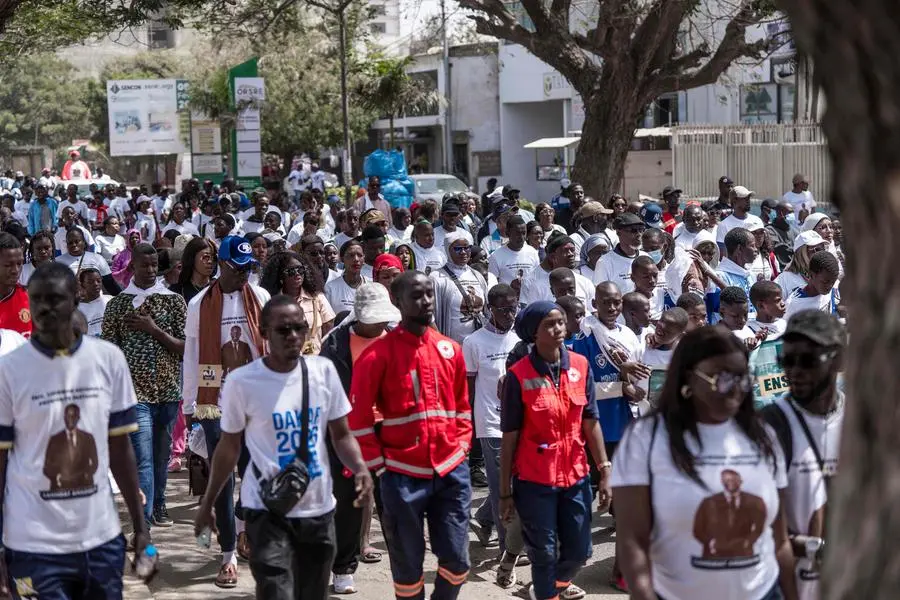PHOTO
Hamza Soumboundou and his fellow students are just days away from sitting their exams, but they are more concerned by Senegal's upcoming presidential election which they are counting on to bring about change.
Gaston Berger University (UGB) in the northern city of Saint-Louis is the second largest in the country and was badly hit by the political crisis triggered by the delay to the February 25 presidential poll.
Two students were killed and several others injured in protests that left a total of four people dead across the country.
After a month of turmoil and under constitutional pressure, President Macky Sall set the new vote date for March 24.
"This election is the most important we've ever had. Many people have died, life has become more expensive and the Senegalese are tired. We need a new system," said Soumboundou, a first-year applied arts student.
The 20-year-old in the northern city of Saint-Louis wants the next president to create jobs, fight corruption and injustice, develop agriculture, and cancel foreign fishing agreements.
He is also hoping for a re-establishment of the rule of law, which he says was flouted under outgoing President Sall.
UGB has experienced less unrest than Cheikh Anta Diop University in the capital Dakar, but protests there are known to descend into violence.
Clashes over grant payments in 2018 left one student dead.
- 'Lost all hope' -
Soumboundou had to undergo surgery after being hit in the legs by rubber bullets during the most recent unrest.
He has since walked with a limp and struggles to sit for long periods of time.
But he vowed nothing will stop him from voting.
Soumboundou said he regularly discusses problems affecting students with his classmates, including the harsh repression of protests, university living conditions and unemployment, which stands at 19 percent according to the national statistics agency.
The issues are widespread amongst the youth in Senegal, where 75 percent of the population is under 35, national statistics show.
It goes some way to explaining why thousands of Senegalese have taken the perilous Atlantic route to reach Europe in recent years.
"Young people have lost all hope in their country. They tell themselves that if they stay here they will never succeed, which is why illegal emigration has increased so much in recent years," said Angelle Preira, a 25-year-old economics student.
Like many of the young people interviewed by AFP, Preira backed anti-establishment opposition figure Ousmane Sonko.
The firebrand was disqualified from running in this year's election, but Preira said she would vote for his endorsed candidate, Bassirou Diomaye Faye.
Both men were released from prison late Thursday, sparking jubilant scenes in the streets of Dakar.
Fellow student, Oumar Goudjaby, agreed that Sonko and Faye's opposition coalition had the most ambitious plan for the Senegalese people.
- 'Depression' -
"These young people are a demographic majority, but not an electoral majority," said Sidy Diop, deputy editorial director of the daily Le Soleil.
Under 35s make up two-thirds of the population but only 28 percent of the electoral roll, he said, adding that he didn't think Sonko had a convincing argument for the over 35s.
Communications student Adama Ndiaye said he was wary of politicians' false promises and was still reading the manifestos of the 19 candidates before making up his mind, or even abstaining.
Life at the UGB campus had largely returned to normal as students observed the Muslim fasting month of Ramadan, but last month's painful episode of unrest still haunted some students.
"Some students suffer from depression and can't even sleep because they hallucinate. They see policemen shooting at them," said Adama Mamadou Kane, president of the Saint-Louis student group.




















